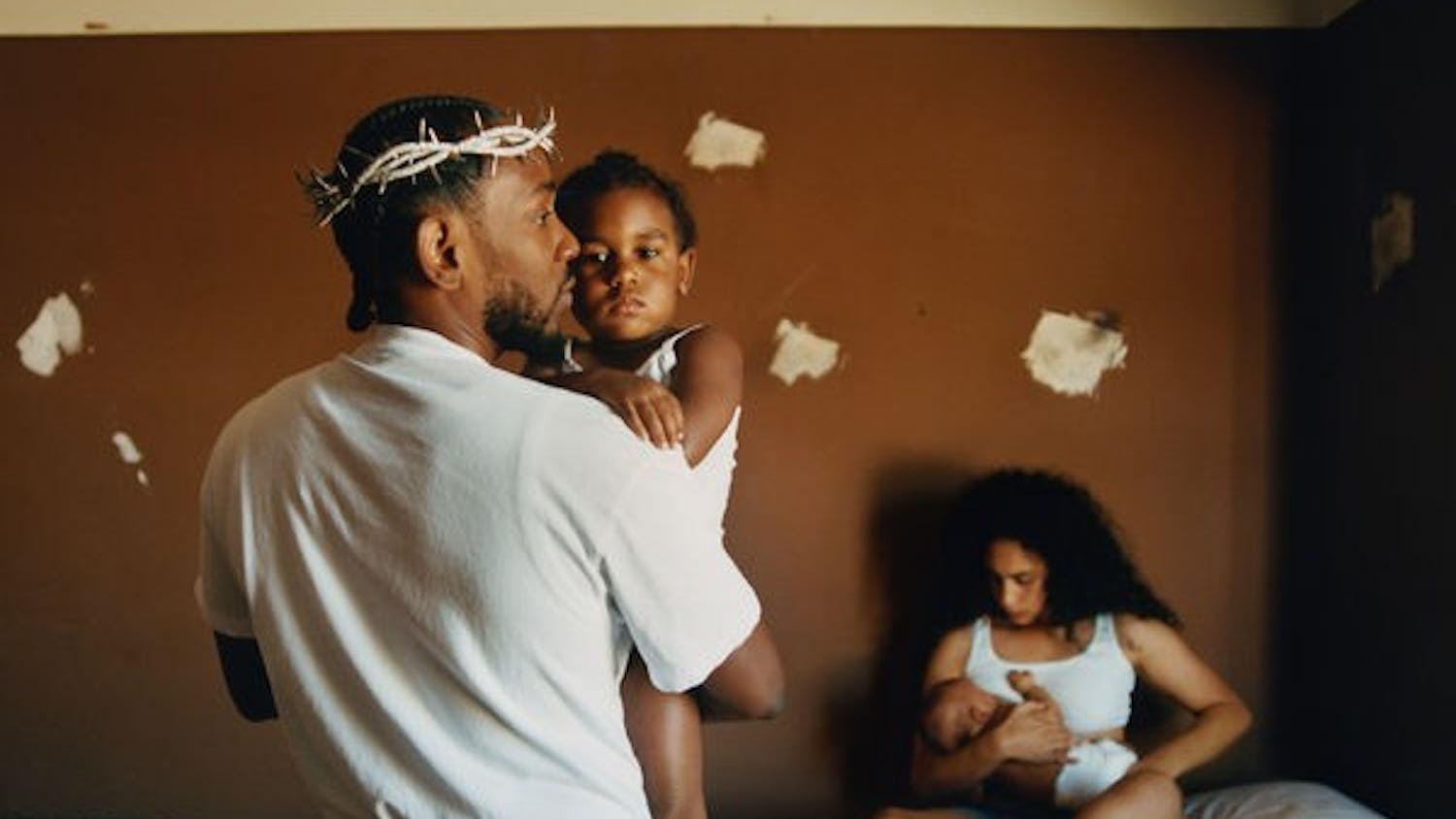There are some artists for whom “hype” cannot begin to describe how anticipated an album is. For Kendrick Lamar, good kid, m.A.A.d city is just that. After the release of his independently released album Section 80, Kendrick Lamar became one of the biggest names in hip hop. The 25-year-old hails from Compton, Calif. and has accrued significant acclaim since his well-regarded mixtape, Overly Dedicated. Lamar attributes his greatest influences to Tupac Shakur and Dr. Dre, the latter of which also called Compton home.
Lamar’s reliance upon wordplay and the content of his lyrics, more than infectious hooks, function as a double-edged sword.
On one hand, his words, both on Section 80 and good kid, m.A.A.d city are insightful into his life and his past; however, it has not been met with great commercial success to date. Good kid, m.A.A.d city is one of the most highly anticipated hip-hop releases since Drake’s first major label debut, and it is no surprise that Lamar is able to open up his rolodex of high-profile friends for this seminal album. Jay Rock, Drake, Dr. Dre and many more all make appearances on Lamar’s latest release, a testament to his rapid ascent through the hip-hop community.
The album opens with “Sherane A.K.A. Master Splinter’s Daughter,” a song that takes more than a minute to get into the lyrics, and then finishes with a story, a recurring theme throughout the album.
The skits interjected throughout the album are reminiscent of Kanye West’s My Beautiful Dark Twisted Fantasy, and this is not the only parallel between West and Mr. Lamar. “Bitch, Don’t Kill My Vibe” gives any listeners who might be getting acquainted to Lamar a taste of his signature style when he goes on long runs of phrases at breakneck speed without stopping.
Lamar gives his first blatant homage to Tupac on “Backseat Freestyle.” However, the song refuses to go anywhere, with a repeating hook and a chorus that melds right into the verses. This is Lamar at his angriest, and unfortunately, it does not work. Yet his style shines through on “The Art of Peer Pressure,” as he uses his distinct speak/sing voice while telling a story of his friends and life in his neighborhood.
The album as a whole tells the story of one night with Lamar and his friends as they traipse through the city of Compton. This concept album once again hearkens back to the parallels between this and West’s My Beautiful Dark Twisted Fantasy in its sense of cohesion, as complete albums are becoming rarer in an increasingly single-reliant industry.
The halfway point of the album is where good kid, m.A.A.d city hits its stride. “Poetic Justice” features a phenomenal verse from Drake as well as a perfectly placed sample of Janet Jackson. Pharrell Williams lends a hand on “good kid,” which he produced and co-wrote. Once the song comes on, it elevates the album from merely good hip hop, to an influential body of work replete with social commentary.
“Swimming Pools (Drank),” the lead single from the album, stands as a good song on its own. The chant at the beginning likens back to Section 80’s “The Spiteful Chant” and features one of the catchiest hooks of the album. However, it slightly breaks from the continuity of the rest of the album as it shows a new reality in opposition to the grim, inner-city picture the rest of the narrative paints. From the way “Swimming Pools (Drank)” did on the charts, one can only expect success to follow for the album overall.
Lamar’s 12-minute opus, “Sing About Me, I’m Dying of Thirst,” is more skit than song at times. The song truly gives the album a conceptual feel as verses alternate with phone calls and other conversations between his storytelling lyrics. Behind this tale is a jazzy, Roots-esque backbeat. After “Real” comes the closing track of the album, “Compton” which features fellow Compton-bred rapper, Dr. Dre, and, pun intended, brings it all home.
This grand finale has a far more produced feel to it than the rest of the album. If good kid, m.A.A.d city was a movie, this would be the closing scene. We can practically see 17-year-old Lamar grow up as he states, “This is king Kendrick Lamar.”
While most of Lamar’s tracks feel rough around the edges, “Compton” is his attempt at creating a radio-single, and his reliance on production tricks shroud the clever lyrical content behind it.
Overall, the album tells the very real story of an 11th-grade Lamar and a day in the life of a kid in Compton. Evoking Goblin, or any other “hip hopera” so to speak, this feels like a complete album as opposed to a mere collection of songs as many hip-hop albums have come to in recent vintage. While in my opinion, it falls short of the masterpiece that was Section 80, good kid, m.A.A.d city is certainly a must listen for fans and non-fans alike.





